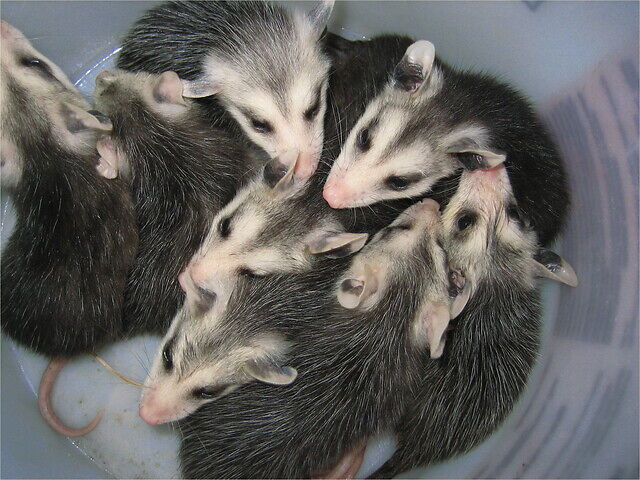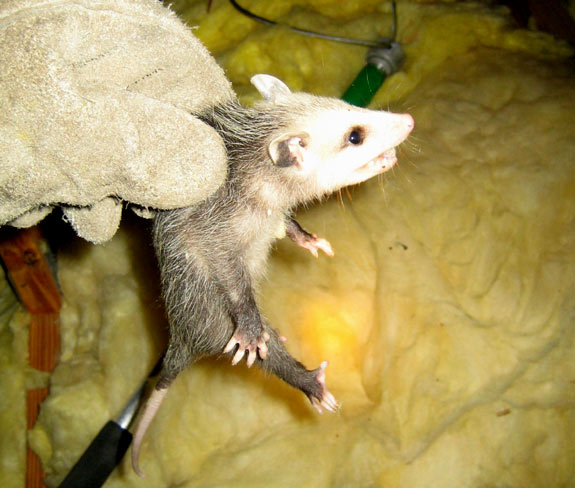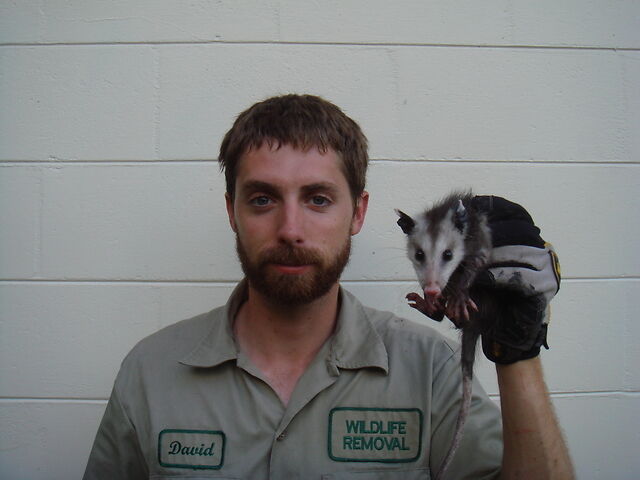What to Do With Orphaned Baby Opossums
If you find an orphaned baby opossum, there are several ways you can help ensure the animal’s health. It is best to nurture and take care of the animal until further rehabilitation assistance can be provided by professionals. Contact professionals immediately about the situation and assist the opossum until their arrival.
The amount of care you provide to the young opossum will be based on the size of the animal that is found. The younger or smaller they are, the more immediate and intensive the help needed will be.
< 4 Inches

An orphaned opossum this small needs immediate help to survive, and professionals will need to be contacted immediately.
1. Warm the Opossum
You can warm the baby by wrapping it in a towel or placing it in a box with a warm cloth, near or on top of a heat source. Make sure the heat source is set on low to not harm the opossum.
2. Feed the Opossum
Provide the baby with food and research the appropriate diet. One option is a diluted Pedialyte for the first two feedings. After these initial feedings, dog milk substitutes can be utilized.
- Feeding from a syringe is recommended for the best results.
- Do not ever force-feed the baby, as it can choke.
3. What to Do After Feeding
After the opossum is finished eating:
- Massage its bladder and bowels near the tail with a warm wet cloth, wipe, tissue, or cotton ball.
- Wipe down towards the tail and continue until the baby has finished defecating. It is important to assist the opossum after eating, as it can be harmed from a ruptured bladder if it is not emptying completely.
- Analyze the feces and urine to judge the opossum’s hydration levels and determine how you can best support its diet. It is best to not care for the opossum too long by hand, as they need to have a healthy long-term diet and to ensure they are properly being treated to avoid any severe health effects.
4-7 Inches

Simply offer water in a bowl or watered-down cat food to the opossum until professionals arrive.
> 7 Inches

If the opossum is larger than 7 inches, it is not a baby and can fend for itself. It is best to avoid assistance unless you believe the animal is injured or sick.
The above suggestions are not meant to be practiced long-term, so contact your state’s wildlife department, animal rehab centers near you, animal control, or a vet to be directed to be advised on best next steps in your local area and receive immediate aid. If the orphan is sick or injured, note its symptoms as additional assistance may be needed by you to ensure the baby’s survival.
Before calling professionals or taking any home care steps, make sure to be positive that the opossum is orphaned without any others located nearby. Do not take a baby away from a mother. Additionally, always handle opossums with care, because they may be carrying parasites. Wearing gloves is suggested for your own household’s health, in these cases. Similarly, safely dispose of any opossum feces if found, as diseases can be spread from their stool.
If you find an orphaned opossum checklist:
- Check for other animals in the vicinity to ensure it is left alone
- Contact a professional for immediate assistance
- Provide the baby with appropriate care based on its age/size and current health
- Ensure the opossum has good levels of warmth and hydration to stay healthy
- Handle the orphan and its feces/waste carefully with gloves, as the animal may bite or be carrying parasites